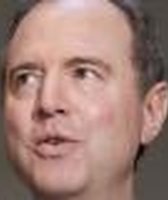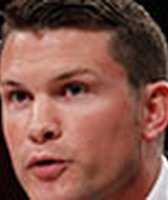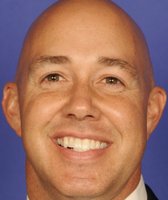Stand up for the facts!
Our only agenda is to publish the truth so you can be an informed participant in democracy.
We need your help.
I would like to contribute
The 2018 elections saw close margins and record turnout, ultimately handing power to Democrats in the U.S. House of Representatives. As their first bill in the new Congress, House Democrats have introduced major legislation to expand voting rights.
Their opening move has drawn fire from Republican Senate Majority Leader Mitch McConnell, who called the proposed legislation a "power grab."
"Their proposal is simply a naked attempt to change the rules of American politics to benefit one party," he wrote in a Washington Post op-ed. "It should be called the Democrat Politician Protection Act."
Democrats are fighting back. Stacey Abrams answered McConnell in her party’s response to President Donald Trump’s State of the Union.
"We must reject the cynicism that says allowing every eligible vote to be cast and counted is a power grab," Abrams said. Abrams formed a voting rights organization, Fair Fight Georgia, after her narrow loss in the Georgia governor’s race.
Sign up for PolitiFact texts
The bill isn’t expected to pass this Congress. But Democrats seem intent on using it as part of their political strategy ahead of the 2020 campaign.
"It's a sign that Democrats are strongly moving towards a message that the franchise is over-restricted and Republicans are to blame," said Chapman Rackaway, University of West Georgia political science professor.
So what is in HR 1, and why are people ready to fight over it?
What’s in the Democrats’ HR 1
Called the "For the People Act," HR 1 is a sweeping bill that contains nearly 600 pages of changes to laws aimed to make it easier to vote, increase election security and improve campaign finance transparency.
It includes detailed rules about every aspect of voting — for example, requiring that absentee ballots not need postage. The bill includes policy statements vowing to undo the impact of major court rulings such as Citizens United vs. FEC, which allows unlimited political spending by corporations, and Shelby County vs. Holder, which allowed jurisdictions with a history of discrimination to change voting laws without preclearance from the federal government.
The new bill would require states to take several steps to make it easier for people to vote. It would require local election officials to do the following:
• Offer online voter registration;
• Establish automatic voter registration;
• Allow voter registration on the day of a federal election;
• Allow voters to correct their registration information at the polls;
• Restore voting rights to felons after they leave prison;
• Offer at least 15 days of early voting; and,
• Follow new rules before purging voters from registration lists.
The bill also has several measures related to campaign finance or ethics:
• Require super PACs to disclose donors who give more than $10,000;
• Require major online platforms to maintain an online public record of people who buy at least $500 worth of political ads; and
• Use public financing to match small dollar donations to House and presidential candidates.
In a nod to efforts by Democrats to reach out to minority voters, House Democratic Leader Nancy Pelosi said she would advance the bill, cosponsored by 227 Democrats, in February during Black History Month.
McConnell has made it clear that the legislation won’t survive the Republican Senate.
Why conservatives oppose it
McConnell and other conservatives who oppose HR 1 say that it strips away power from the states and hands it over to the federal government.
J. Christian Adams, president and general counsel of the Public Interest Legal Foundation, said there is also no need to overhaul voting laws. Adams served on Trump’s short-lived voter fraud commission following Trump’s unsubstantiated claims of mass voter fraud.
Adams told the House Judiciary Committee Jan. 29 that voting has never been easier.
"In fact, it is difficult to avoid opportunities to register to vote," Adams testified, pointing to registration drives everywhere from schools to jails to methadone clinics.
We asked McConnell’s spokesman, Don Stewart, if McConnell believes that the Senate should change any laws to expand voting access. He pointed to McConnell’s effort to pass the Help America Vote Act in 2002. Stewart also noted that while Abrams talked about voter suppression during her response to Trump, Georgia had record turnout.
Election law experts said that Congress is within its power to issue more directions to local officials.
"It is true that the bill shifts more power to the federal government, such as by requiring states to use some kind of nonpartisan process for drawing congressional districts," said Rick Hasen, a professor of law and political science at the University of California. "But the Elections Clause in Article I of the Constitution specifically gives Congress the power to regulate federal elections, even over the objections of the states."
Loyola law school professor Justin Levitt said that while HR 1 would increase the extent of federal regulation, the vast majority of the provisions still leave the state in charge of administering the elections and adds federal grants to pay for the extra cost.
States’ efforts to expand voting rights
In Georgia, Abrams lost the governor’s race to Brian Kemp, who oversaw elections and implemented restrictions as secretary of State.
While Kemp’s moves were widely criticized, Georgia experienced 61 percent turnout, a record for a Georgia midterm election. Nationwide, the 50 percent turnout was higher than it had been in a midterm in more than a century, and nearly three dozen states saw double-digit increases in turnout compared to 2014.
Regardless of what happens to HR 1, many state Legislatures are considering election-related bills to expand voting access. According to the liberal Brennan Center for Justice at New York University School of Law, 31 states have filed or pre-filed at least 230 bills that would expand voting access, far more than the proposals to restrict voting access. This includes proposed voter reforms in Republican-led states such as Iowa, where Gov. Kim Reynolds proposed restoring voting rights to felons after they complete their sentences.
Max Feldman, a lawyer who works for the Brennan Center, said it remains to be seen which voting laws will be changed.
"Several states across the country have introduced high-impact voting reforms that could significantly expand access to the ballot so far this year," he said. "New York has already enacted a suite of important reforms, and expansive bills in some other states are making progress. But it remains early in the legislative session, and we’ll have to continue to watch developments closely."
Our Sources
Congress.gov, HR 1, Introduced Jan. 3, 2019
House Speaker Nancy Pelosi, Dear Colleague: House Democrats Advance For The People Agenda, Feb. 4, 2019
United States Election Project (University of Florida professor Michael McDonald, 2018 General election turnout rates, Dec. 14, 2018
Roll Call, House Democrats unveil first major legislative package of voting, campaign finance and ethics overhauls, Jan. 4, 2019
Washington Post opinion, Mitch McConnell: Behold the Democrat Politician Protection Act, Jan. 17, 2019
Mother Jones, Brian Kemp’s Win In Georgia Is Tainted by Voter Suppression, Nov. 16, 2018
Bloomberg, Americans Actually Voted in the 2018 Midterms, Dec. 20, 2018
J. Christian Adams, Testimony to U.S. House Judiciary Committee, Jan. 29, 2019
Pew Stateline, After a Messy Election, a Push to Make Voting Easier, Jan. 29, 2019
Brennan Center, Voting Laws Roundup 2019, Jan. 23, 2019
National Conference of State Legislatures, Election legislation: coming to a state near you, Jan. 22, 2019
Democracy Fund Electionline, Outlook for state election legislation 2019, Jan. 17, 2019
Washington Post, Pelosi, Sarbanes: The Democratic majority will restore democracy, Nov. 25, 2018
PolitiFact, Why Alito shook his head: Obama exaggerates impact of Supreme Court ruling on foreign companies, Jan. 27, 2010
PolitiFact, For the 50th anniversary of the Voting Rights Act, a look back at our fact-checks, Aug. 7, 2015
PolitiFact, No proof of Trump's conspiracy theory that millions voted many times, April 6, 2018
Interview, Don Stewart, Sen. Mitch McConnell spokesman, Feb. 6, 2019
Interview, Justin Levitt, Loyola law school professor, Feb. 6, 2019
Interview, Chapman Rackaway, University of West Georgia chair of political science department, Feb. 6, 2019
Interview, Richard L. Hasen, Chancellor’s Professor of Law and Political Science at the University of California, Irvine, Feb. 6, 2019
Interview, John Hallman, Election Systems Manager, State Elections Division, Georgia Secretary of State Brad Raffensperger, Feb. 6, 2019
Interview, Max Feldman, New York University Brennan Center for Justice counsel in the Democracy Program, Feb. 7, 2019






































